![]() Hello, gentle readers, and welcome to the Classic Reload, the monthly feature where we don’t want zombies on our lawn. Each month, we take a look at a game from the App Store’s past to see how it holds up in the present day. It’s a chance to revisit old favorites, reflect on their place in the overall iOS library, or just to take a deeper dive than our reviews typically allow. I try to pick a nice selection of titles from month to month, but if there’s a game you really want to see, don’t be shy! Leave a comment below and let me know. If I think it’s cool, I’ll add it to the master list and you’ll see it pop up sooner or later.
Hello, gentle readers, and welcome to the Classic Reload, the monthly feature where we don’t want zombies on our lawn. Each month, we take a look at a game from the App Store’s past to see how it holds up in the present day. It’s a chance to revisit old favorites, reflect on their place in the overall iOS library, or just to take a deeper dive than our reviews typically allow. I try to pick a nice selection of titles from month to month, but if there’s a game you really want to see, don’t be shy! Leave a comment below and let me know. If I think it’s cool, I’ll add it to the master list and you’ll see it pop up sooner or later.
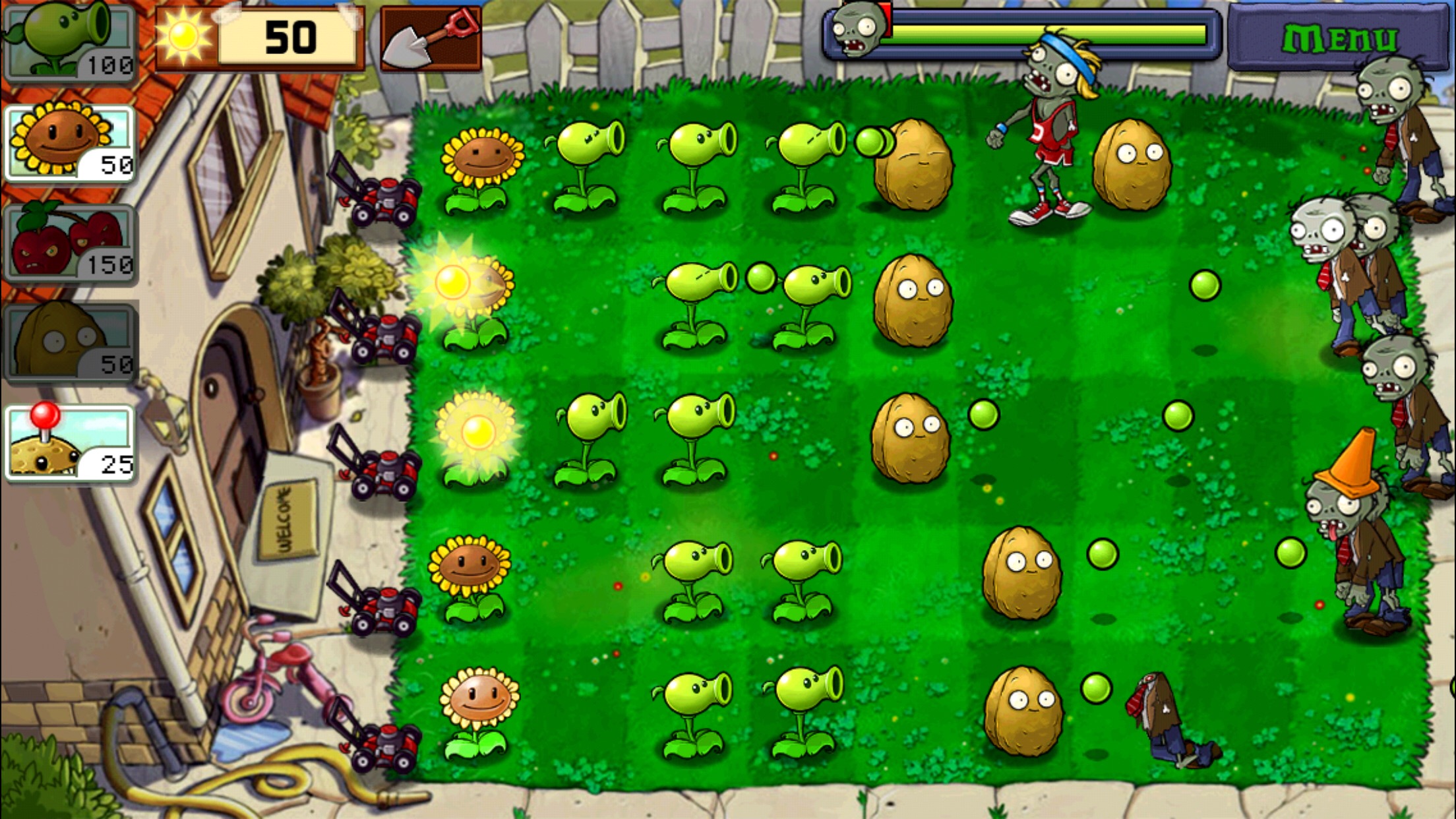
These days, it seems like the idea of casual gaming and mobile devices walk hand-in-hand in the view of the general public. It’s not hard to see why, I suppose. Just about everyone seems to have a mobile device of some sort now, and with the way that most people use those devices, games that are easy to pick up and play for short periods of time naturally rule the roost. Of course, it wasn’t always like this. Simple puzzle games, card games, and other similar games have long thrived in the home computer market and indeed still have a major presence there today, largely for similar reasons. Not everyone is into gaming enough to seek out dedicated hardware and invest in learning something with complex rules or a requirement for quick reflexes. Anyone who owns a computer for any reason at all probably has plenty of pockets of time where they’re bored and need a brief distraction, however. The delivery system for these games has changed plenty over the years, from the dark days of occupying $5 spinner racks in stores to the modern era where most of these games can be played in a browser or on your phone for free.
PopCap Games was founded in the year 2000, an interesting time for casual gaming and PC games alike. Game consoles were the belles of the ball, with the PlayStation 2 about to kick off what would be an unmatched success in that market. Dedicated handhelds had gotten a serious kick in the pants from the Pokemon phenomenon and a long-awaited new generation of hardware was just on the horizon. By contrast, the PC gaming market seemed to be in a tough spot. The console boom had lured away a lot of hardcore players, the digital market was still years away from being a thing, and physical sales of games were falling off badly. It was bad enough that many pundits were declaring PC gaming to be a dead market, even though there were still quite a few big successes like Starcraft and The Sims.
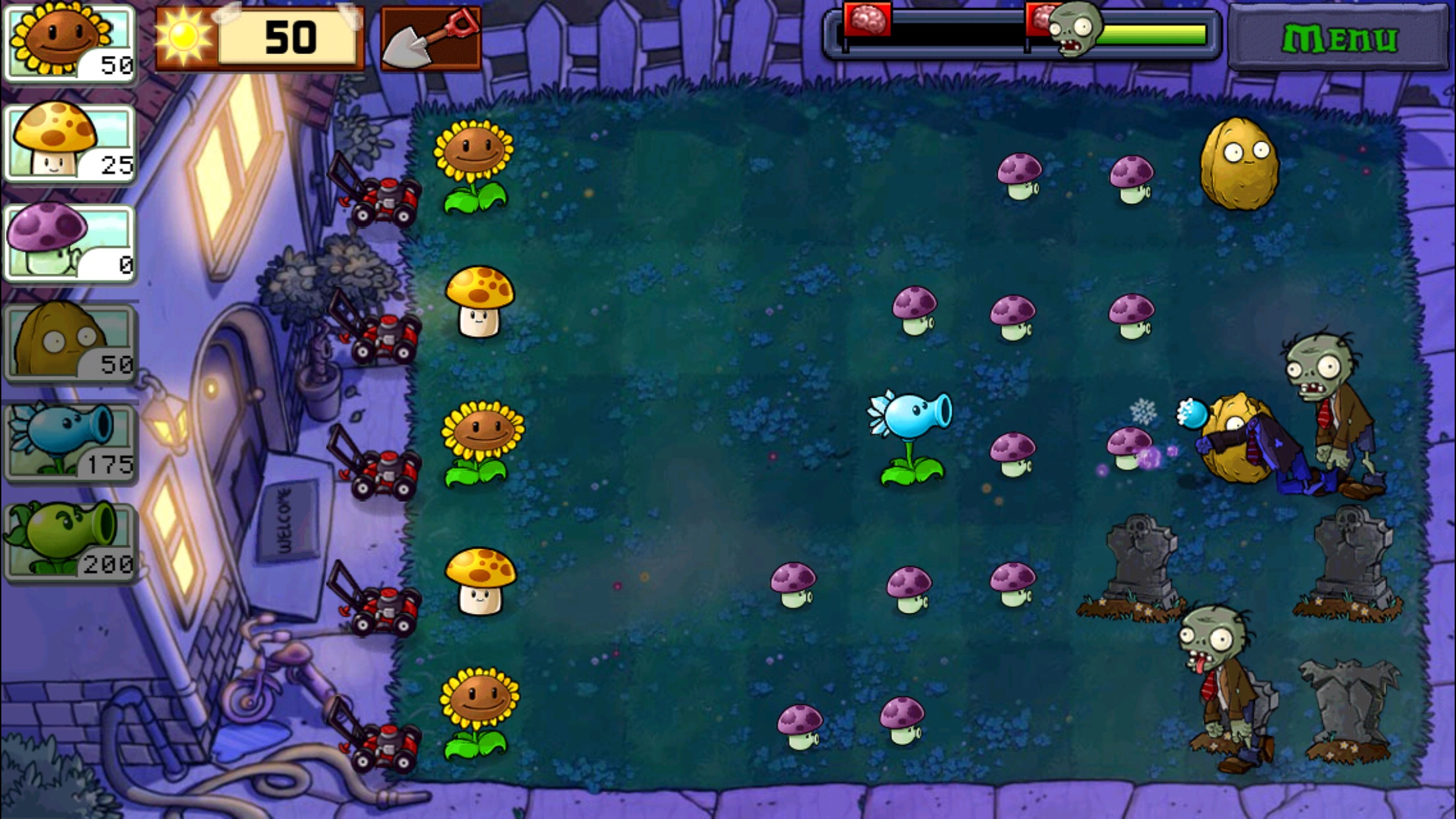
At a glance, this might seem like a pretty poor time to get into the business of making PC games, but there was a bigger picture happening that a lot of armchair analysts didn’t pick up on. The thing is, everyone still had computers and were using them often. High-speed internet was spreading quickly, and the processing power of the average computer was pretty good even on computers not rigged for gaming. But instead of going down to their local shop and picking up a $30 piece of software that may or may not run on their computer, the average user was finding their entertainment on the web. Browser games were proving fairly popular with kids and more casual adult players in particular. And although the gaming shops might have had trouble moving full-priced big-box software for PCs, Walmarts were stuffing a lot of $10 games enclosed in jewel cases into shopping bags.
Emboldened by internet gaming sites, John Vechey, Brian Fiete, and Jason Kapalka founded PopCap Games and got to work on their first game, which would be first released in browser form in 2001. That game would eventually be known as Bejeweled, and although it was met with indifference or even outright scorn from some, it was a massive hit. For a while, it was the game that you would catch people who didn’t normally play games playing. There’s nothing particularly unique about the game, but its blend of attractive aesthetics and accessibility connected with a lot of people. While it didn’t create the match-3 genre, it certainly can be credited for popularizing it, and I think it’s quite safe to say Candy Crush Saga wouldn’t exist if Bejeweled had never been released.
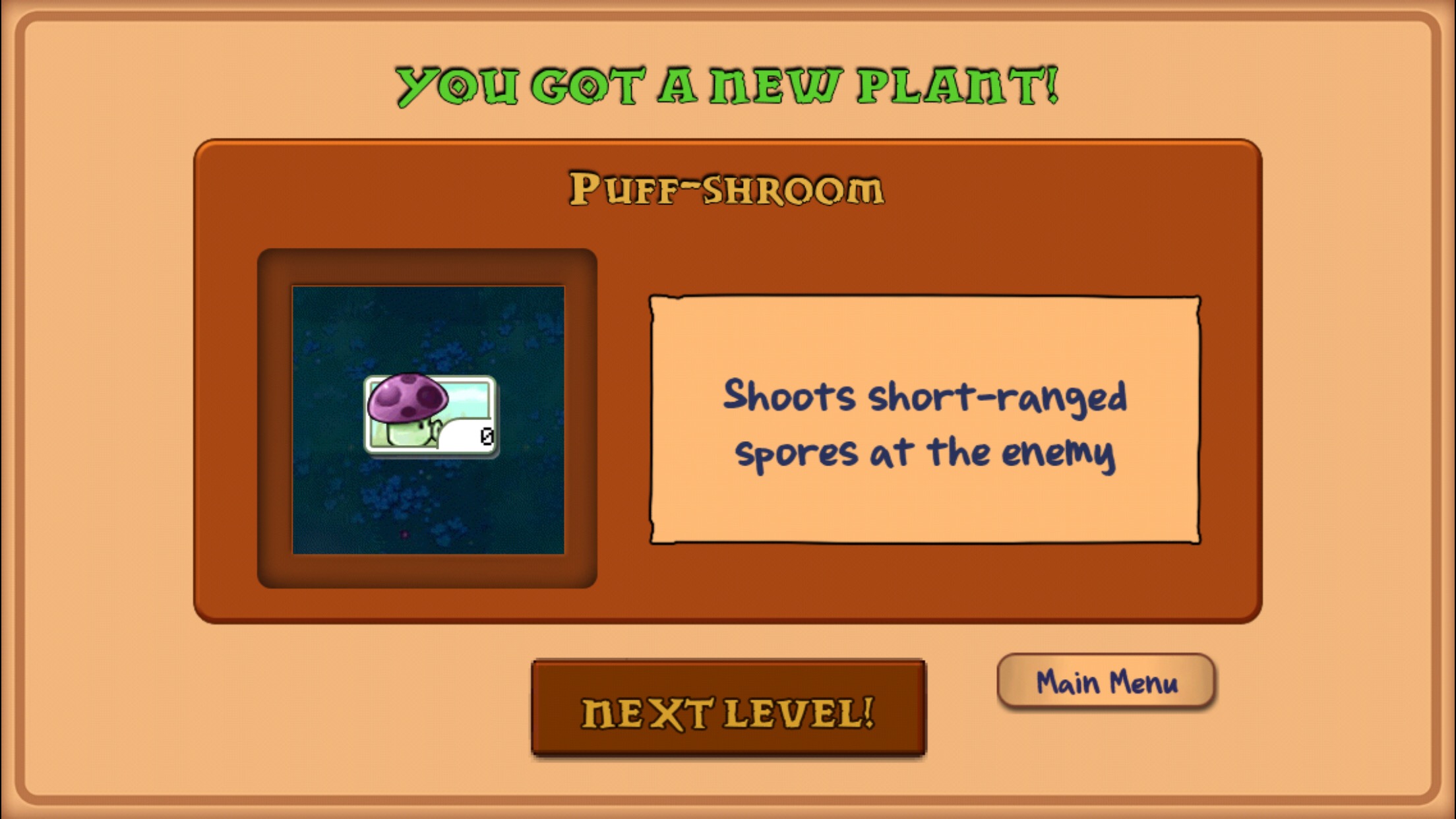
With Bejeweled proving a big success, PopCap had the funds and clout to produce plenty of games for the foreseeable future. And boy, did they ever. While there were almost as many misses as there were hits, when a PopCap game hit, it hit big. Word puzzle game Bookworm and Puzz Loop clone Zuma were particular highlights in the years following the release of Bejeweled. PopCap began expanding, working with other developers and releasing across other platforms. As digital marketplaces finally came into their own, PopCap was right in there, making deals with Valve and other companies to ensure their games were wherever players went looking for them.
Like many gamers of the time, I knew of PopCap but didn’t really pay them much mind. I personally felt that most of their games were dull knock-offs, if I’m to be honest, and saw them in much the same way some of our readers probably see King today. For me, that changed with 2007’s Peggle. I had never played anything quite like that incredibly enjoyable blend of pachinko and pinball, and I ended up picking it up on just about every platform it released. So when the adorable trailer for PopCap’s Plants vs Zombies ($0.99) first hit in early 2009, I was paying attention. Apparently, so was everyone else, because when the game hit PC on May 5, 2009, it quickly became PopCap’s fastest-selling game of all-time. Plants vs. Zombies ended up getting ported to just about every platform under the sun, but iOS was lucky enough to be the first stop on its tour. The iOS version released on February 15th, 2010, and it was unsurprisingly a huge hit. It sold more than 300,000 copies in its first 9 days on the App Store and was at the time the top-grossing iPhone launch to date.
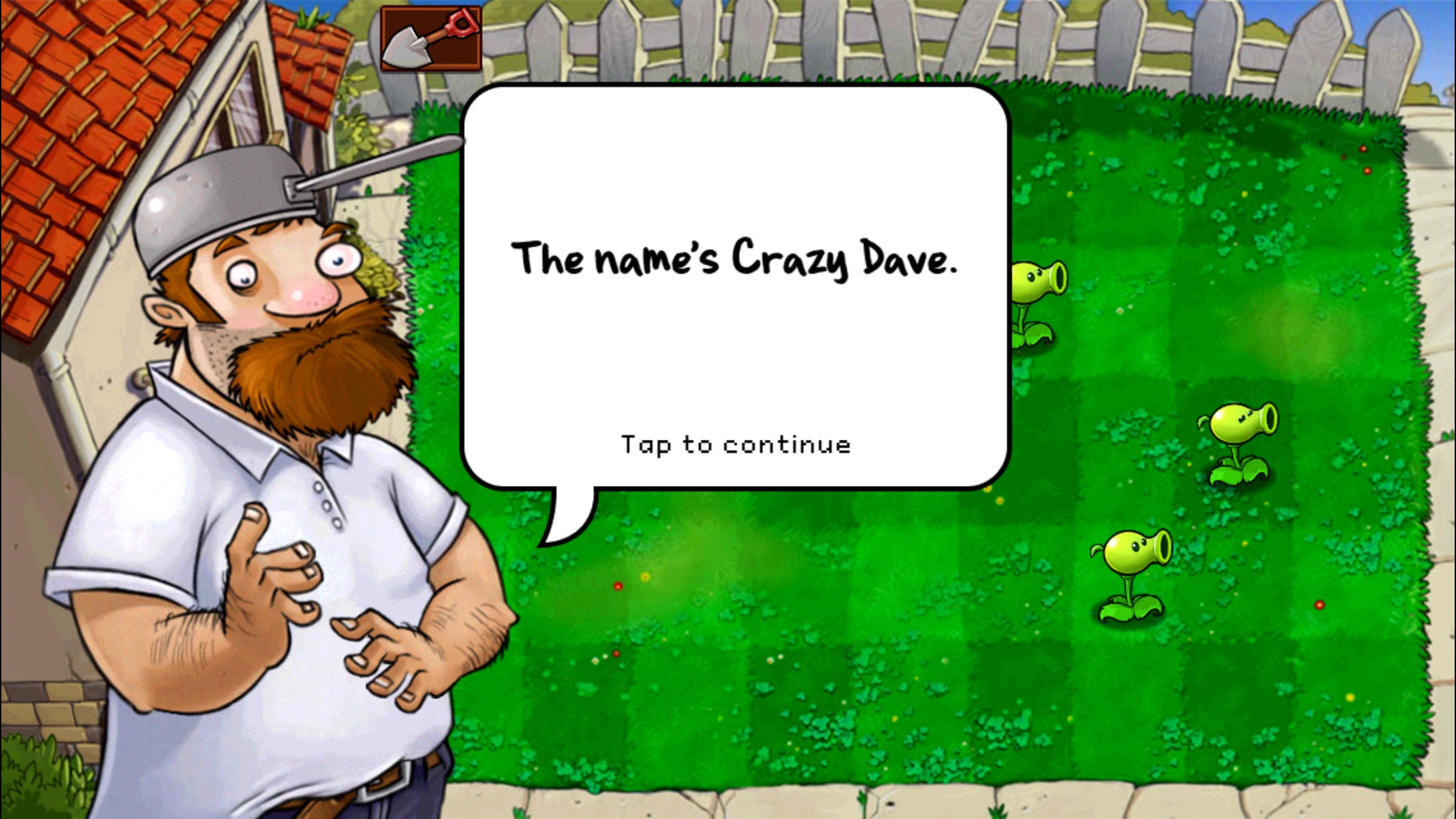
Plants vs. Zombies is a base defense game that draws from a number of sources. Its director, George Fan, has cited games like Warcraft 3, Magic: The Gathering, and even Tapper. Fan’s earlier title Insaniquarium also inspired many of the fundamentals of the game. Plants vs. Zombies was designed to be a tower defense game that could be enjoyed by both casual players and more experienced gamers. Unlike many games that shoot for that goal, this one managed to nail it. Using a lane-based system like Tapper makes it a lot easier to see where threats are coming from and how to place your units to defend against them. New plants and zombies are rolled out slowly so that players can get comfortable with each of them in good time while providing the additional benefit of keeping the game fresh. Limiting the number of different plants players can bring into each mission ensures that casual players won’t be overwhelmed with too many choices while also adding a layer of strategy that experienced players are sure to appreciate.
The game succeeds at two very important things. First, the moment-to-moment gameplay is a lot of fun. You might have a vague idea of what zombies you’re up against thanks to the preview before each stage, but you never know when they’ll start marching or in what combinations, so you have to be able to think on the fly. As each stage starts, your resources are severely restricted, so you have to think very carefully about the order in which you place your units. At the close of each stage, you’ll likely have a marvelous lawn filled with zombie-killing plants, leaving you to put out fires wherever they may occur. Resources become less of an issue, but managing free space can be tricky as the zombies flood the screen. Since the computer controls the speed at which the waves arrive, each stage is basically set to last a specific amount of time, making for an enjoyable coffee break if that’s all you’ve got time for.
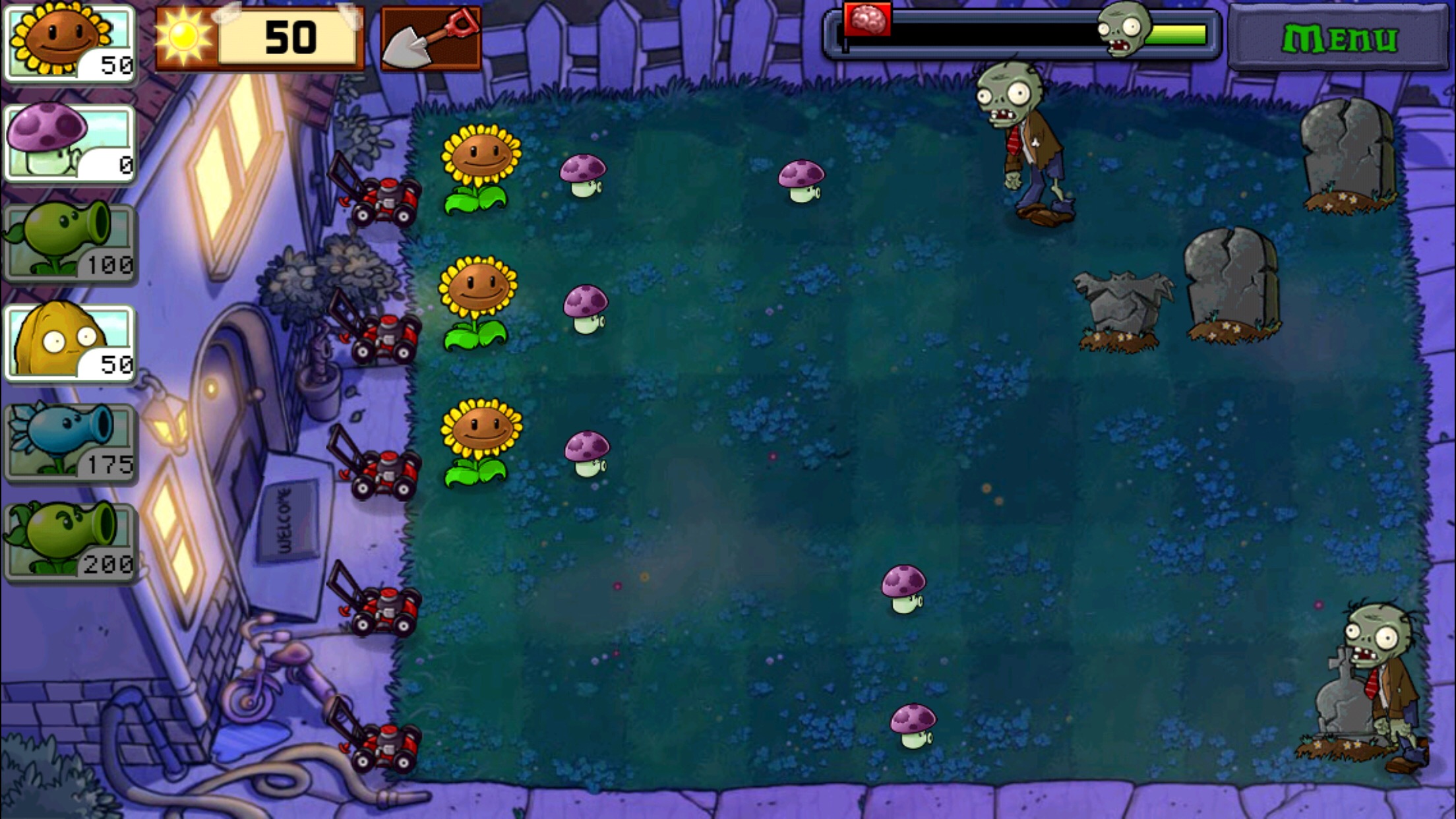
The other important thing Plants vs. Zombies does well is in giving the player a strong feeling of progression. Almost every stage you clear earns you another new plant, giving you new options and strategies to work with while also rewarding your achievement. The challenge steps up at a nice rate as well, throwing more difficult combinations of zombies at you that force you to step outside of your comfort zone with your load-out. And when it’s finally boss time, the game doesn’t fool around. But the cool thing is that since your forces are always expanding, you’re usually ready for anything the game might throw at you. That’s almost good enough on its own, but there’s also an upgrade system using in-game currency that gives you another source of progress.
Like other PopCap games, Plants vs. Zombies enjoys a really nice presentation. I don’t always find their character art to be to my tastes, but the look of this game works for me. The plants have a cute, animal-like feel to their designs, while the zombies come off more as silly than threatening. Their makeshift attempts at armor always brings a smile to my face. The music and audio effects are quite excellent, as well. Playing the game is so easy on a touch screen that you would think the game was designed around it, and all of the menus and options are as straightforward as you would expect from this developer. One thing I picked up on from this fresh re-install was how well-done the tutorial was. It teaches you what you need to know without being heavy-handed or overstaying its welcome.
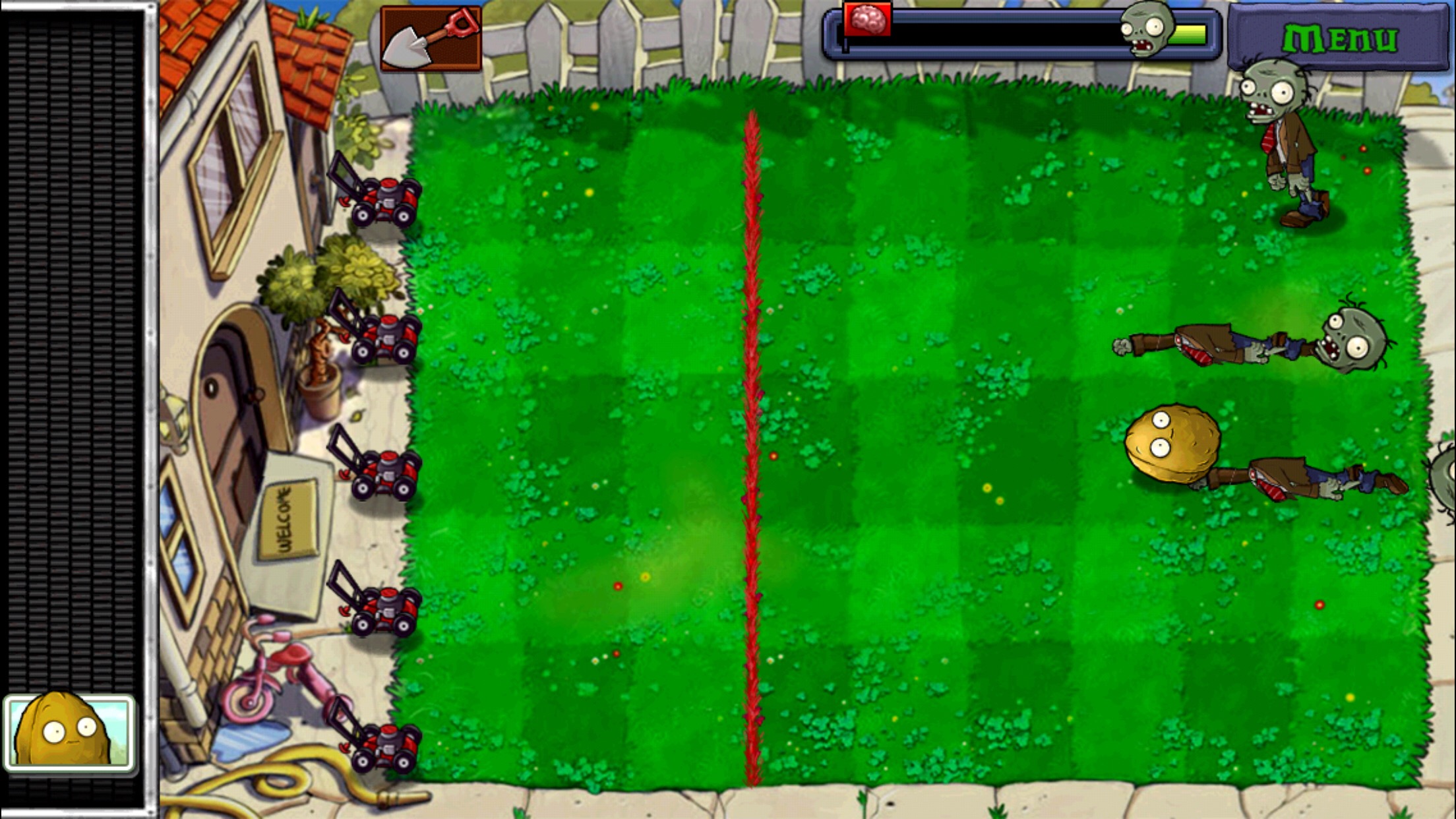
Since PopCap was acquired by EA, they’ve changed their focus considerably. Nevertheless, they’ve continued to take care of this version of the game faithfully, even though it would probably be in their best financial interests to let it die and hope the players move to its free-to-play sequel. The game has been updated on a regular basis over the last seven years, and its most recent update came less than a year ago in July of 2016. This was a game that was released when everyone was using iPhone 3G, and it still runs like a charm on modern hardware. That’s something to be applauded. PopCap also added a ton of extra content to the game over the years, though that well has admittedly dried up after the release of Plants vs. Zombies 2 (Free).
Now, depending on your tastes, you might prefer the endless events and bottomless content of the sequel. But I feel like the original Plants vs. Zombies is the better game all-around, and it’s more than content-rich enough for me. I don’t deny that PopCap is still making great games, but they’re certainly making them differently from the way they used to. Playing Plants vs. Zombies again reminded me of how much I enjoyed their approach to game development during this particular period of their history. That might sound wistful, but the market has changed and people have to do what they can to survive. I’m just happy that PopCap hasn’t left this one behind the way they had to with some of their other games.
That’s my take on Plants vs. Zombies, but what do you think? You can leave your thoughts on this classic in the comments below. Don’t forget to make some suggestions about classic games you would like to see in this feature in the future while you’re at it. Also, a reminder that our March RPG Reload Play-Along of Lunar is still going strong in the forums, so head on into the thread and join in on the discussion and good times. As for me, I’ll be back next week with the first of two developer interviews scheduled for this month. Thanks for reading!
Next Week’s Reload: It’s another developer interview!